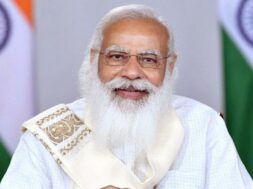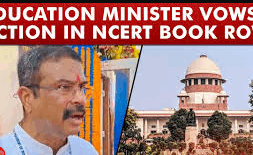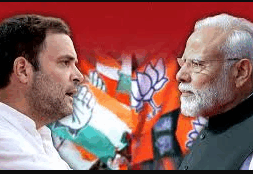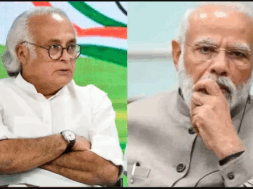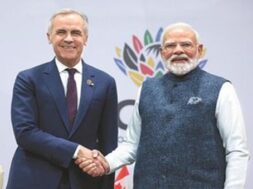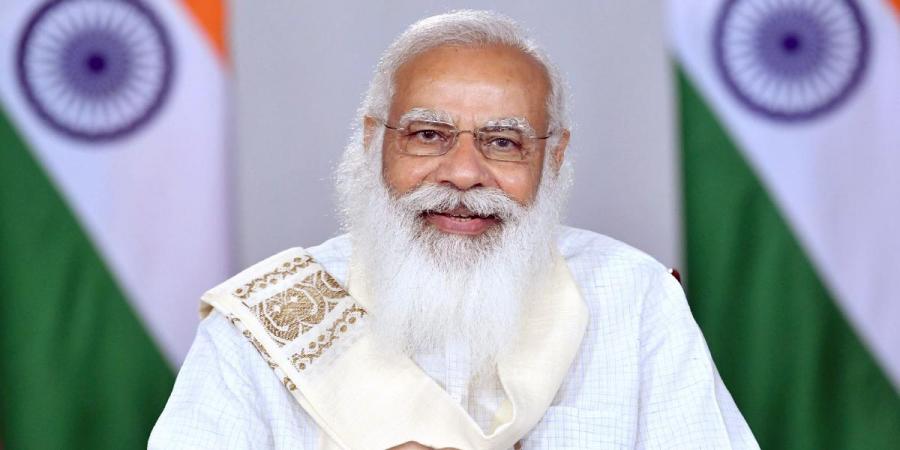
UNSC Open Debate: Modi Highlights International Efforts to Remove Barriers on Sea Route Trade, Prevent Piracy
Manas Dasgupta
NEW DELHI, Aug 9: The Prime Minister Narendra Modi, addressing a UN Security Council debate on Monday evening said barriers must be removed for trade on sea routes, which were currently being misused for piracy.
A week into India’s United Nations Security Council (UNSC) month-long presidency, Modi became the first Indian prime minister to chair a UNSC open debate on maritime security . The debate, titled, ‘Enhancing Maritime Security — A Case for International Cooperation’ began at 08:00 AM New York time (0530 PM IST), with several heads of state or government in attendance, including Russian President Vladimir Putin, the President of Kenya, Uhuru Kenyatta, and the Prime Minister of Vietnam, Pham Minh Chinh.
Modi laid down five principles as he spoke on a boost to maritime security and economy. He called for removing barriers from legitimate maritime trade. In this context Modi highlighted SAGAR (‘Security and Growth for all in the Region’) — a 2015 Indian framework for regional maritime security. In 2019, at the East Asia Summit, this initiative was further elaborated through the Indo-Pacific Oceans’ Initiative (IPOI) with a focus on seven pillars of maritime security.
“For free, maritime trade, it is also necessary that we fully respect the rights of the seafarers of other countries,” Modi said. “The bottlenecks in this can be a challenge for the entire global economy,” he added.
Modi stressed that the settlement of maritime disputes should be peaceful and on the basis of international law only. “This is very important for mutual trust and confidence. This is the only way we can ensure global peace and stability,” he said.
“We must save our maritime environment. We must stop plastic waste. We must act against over-fishing. We must encourage responsible maritime connectivity,” said the PM.
The debate, broadcast live on the United Nations Security Council website, focused on ways to effectively counter maritime crime and strengthen coordination between countries.
Taking over from France, India assumed the rotating Presidency of the UN Security Council for the month of August.
India will organize two more meetings during its presidency, on peacekeeping and counterterrorism, says the country’s Permanent Representative to the UN, Ambassador TS Tirumurti.
This is India’s tenth tenure at the UN Security Council. So far it has been President of the body nine times: June 1950, September 1967, December 1972, October 1977, February 1985, October 1991, December 1992, August 2011, and November 2012.
Modi proposed that countries jointly tackle maritime threats from non-state actors and natural disasters. “India’s role in the Indian Ocean has been that of a net security provider,” he said.
He said the maritime environment and marine resources needed to be conserved, highlighting pollution from plastic waste and oil spills.
The prime minister also called for responsible maritime connectivity saying a structure was required to boost maritime trade, with the development of global norms and standards.
Modi said the “prosperity of all” was dependent on the active flow of maritime trade and urged for peaceful settlement of disputes and according to international law. “This is very important for mutual trust and confidence. This is the only way we can ensure global peace and stability,” he said.
“The ocean is our common heritage. Our sea routes are the lifeline of international trade. And, the biggest thing is that these seas are very important for the future of our planet. But this shared maritime heritage of ours is facing many challenges today,” the Prime Minister said as he chaired the debate virtually in view of the Covid-19 pandemic. “We need to face natural disasters and maritime threats created by non-state actors together,” he said.
Modi pointed out that India has taken several steps to enhance regional cooperation on this subject. Sea routes, he said, are being misused for piracy and terrorism and maritime disputes between many countries have been noticed. “And climate change and natural disasters are also related to the maritime domain,” he said adding that the maritime environment must be safeguarded from pollution through plastics and oil spills.
The UN Security Council has discussed and passed resolutions on different aspects of maritime security and maritime crime, the MEA said. However, this will be the first time that maritime security will be discussed in a holistic manner as an exclusive agenda item in such a high level open debate.
